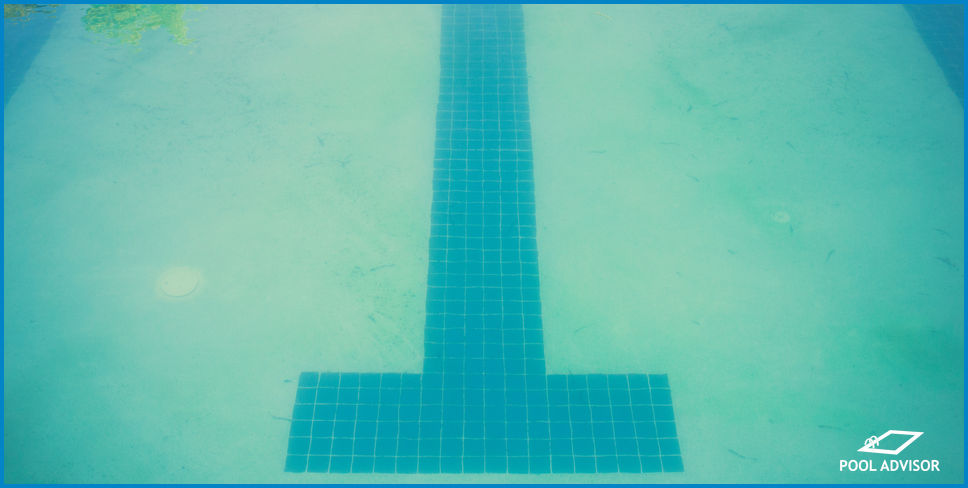
Pool Is Cloudy But Chemicals Are Fine - What To Do?
Cloudy pool water can be caused by a chemical imbalance, but not always. There are other potential sources of pool cloudiness that your normal chemical testing routine and your pool’s filter may both fail to catch!
Read on to learn how to rule out chemical causes of pool cloudiness, the other reasons your pool may be cloudy, and how to make your pool’s water clear again.
Ruling Out Chemical Causes
Before taking steps to clear up a cloudy pool that is not caused by a chemical imbalance, it is necessary to rule out all possible chemical causes. This saves you time and money when treating your pool.
Most pool owners know that an imbalance in the chlorine or pH level of your pool can cause cloudiness. Free chlorine lower than the ideal range of 1-3 parts per million (ppm) can cause cloudy water, and so can a pH that reads above or below the ideal range of 7.2-7.8.
If your pH and chlorine levels are ideal, there could be chemical imbalances with other properties that you may not be routinely checking. You may want to invest in a broad-range test kit that also tests for stabiliser, total alkalinity, bromine, and water hardness.
Total alkalinity is a water property that causes cloudiness if your pool rises above the 80-120ppm range. To lower high alkalinity levels, you will need to use a dry acid.
High water hardness, sometimes referred to as calcium hardness, can also cause cloudy pool water. This is especially common in pools fed with mineral-rich water, such as that sourced from bore wells. The appropriate range of water hardness for pools is between 150-400ppm, and when levels exceed this, cloudy water is almost guaranteed to occur.
Non-Chemical Causes of Cloudy Water
Assuming that none of the above was the cause of your cloudy water, here are some more potential reasons why your pool is cloudy even though the chemicals are fine:
Poor Filtration
Poor filtration is one of the most common causes of cloudy water that cannot be linked to a chemical imbalance. We recommend running your filter for a minimum of eight hours per day, but in many circumstances this may not be long enough.
If you are running your filter for plenty of time during the day, investigate the status of your filtration system. Make sure there are no blockages in intake hoses, such as those that connect to skimmer baskets.
You should also periodically remove your filter from its housing and clean it thoroughly with clean water. If you cannot get your filter reasonably clean, you may need to purchase a new one.
Pollution From Other Sources
Cloudy pool water can also be caused by pollution or unwanted contaminants entering your water. Sometimes, these particles are too small to be taken out by your filter system, even when your filter is functioning perfectly fine.
Fine particles of debris are typically introduced to your pool through swimmers in the form of sunscreen and other skin and hair care products, as well as skin cells and other dust that may accumulate on swimmers before they enter the water.
Organic debris can also enter your pool through the air. In times with particularly high pollen counts, it is not uncommon to find pool water that has turned cloudy due to the tiny particles in the air. Rainwater and storms can accelerate the accumulation of this type of debris in your pool.
Unattended natural debris such as leaves or small tree branches can also cause cloudy water as they slowly begin to break down into the water and release tannins. For this reason, it is important to remove any debris that accumulates in your pool on a regular basis.
If this is a recurring issue, discuss changing the plants around your pool with a professional landscaper (here is a list of some Brisbane-based pool landscapers).
How to Treat Cloudy Water
Pool Clarifiers and Flocculants
Pool clarifiers and flocculants are both products that are used to remove tiny particles of debris from your pool that cannot be picked up by your filter under normal circumstances.
Clarifiers are a low maintenance option that can restore your pool’s clarity in a few days. They work by causing polluting particles to stick together in balls large enough to be picked up by your filter system.
If you are seeking to clear up your pool water faster, you may want to use a flocculant. Flocculant products such as Algon Floc work by making debris in your pool heavy, causing it to settle out on the bottom of your pool. Flocculants require vacuuming to finish the process, but can restore clear water in as little as seven hours.
Other Causes
Algae infestations are also known to cause cloudy pool water. When algae is actively reproducing in the water column of your pool, they can make the water cloudy.
Usually, this effect is only caused by algae infestations that are already appearing as growths on the surfaces of your pool.
If you notice algae forming on the sides of your pool and suspect that it is the cause of your cloudy water, you will want to scrub them off with a brush and then treat your pool with an algaecide like Lo-Chlor Algae Knock Out or a shock treatment to clear it up.
We like the Aquabrite non-chlorine shock that also contains a clarifying agent to restore water clarity as quickly as possible.
If using a chlorine based shock, this pool shock calculator can help you calculate an appropriate dose.
Conclusion
Cloudy pool water is not always caused by imbalances in your water’s chemistry. It can also be an indicator of microscopic pollutants that are too small to be picked up by your filter.
Luckily, clarifying products make a great option for assisting your pool’s pump system with removing tiny debris.
Do you have any questions about cloudy pool water not caused by chemicals? Leave us a comment down below!

Louis
A chemical engineer by trade, Louis is committed to debunking myths in the pool industry by explaining the underlying chemistry and making it accessible to all.
